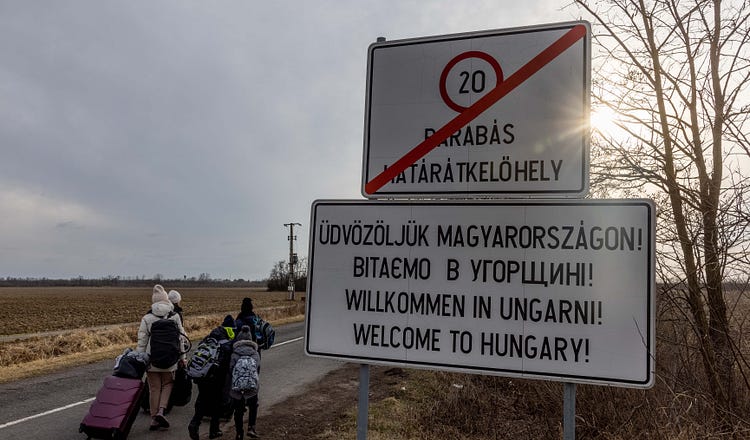The Road Out of Kyiv

People walk with their belongings after border crossing at Barabas-Koson as they flee Ukraine on February 26, 2022. (Janos Kummer/Getty Images)
Fleeing my hometown. Again.
299
The night before Russia started the war, my friends and I met to come up with a plan. None of us really ever thought Kyiv, where we lived, would fall. At worst, we figured there would be some sort of staged terrorist attack in the city to get the government to capitulate, but we decided to have our most important things ready anyway: passports, marriage…
Continue Reading The Free Press
To support our journalism, and unlock all of our investigative stories and provocative commentary about the world as it actually is, subscribe below.
$8.33/month
Billed as $100 yearly
$10/month
Billed as $10 monthly
Already have an account?
Sign In


